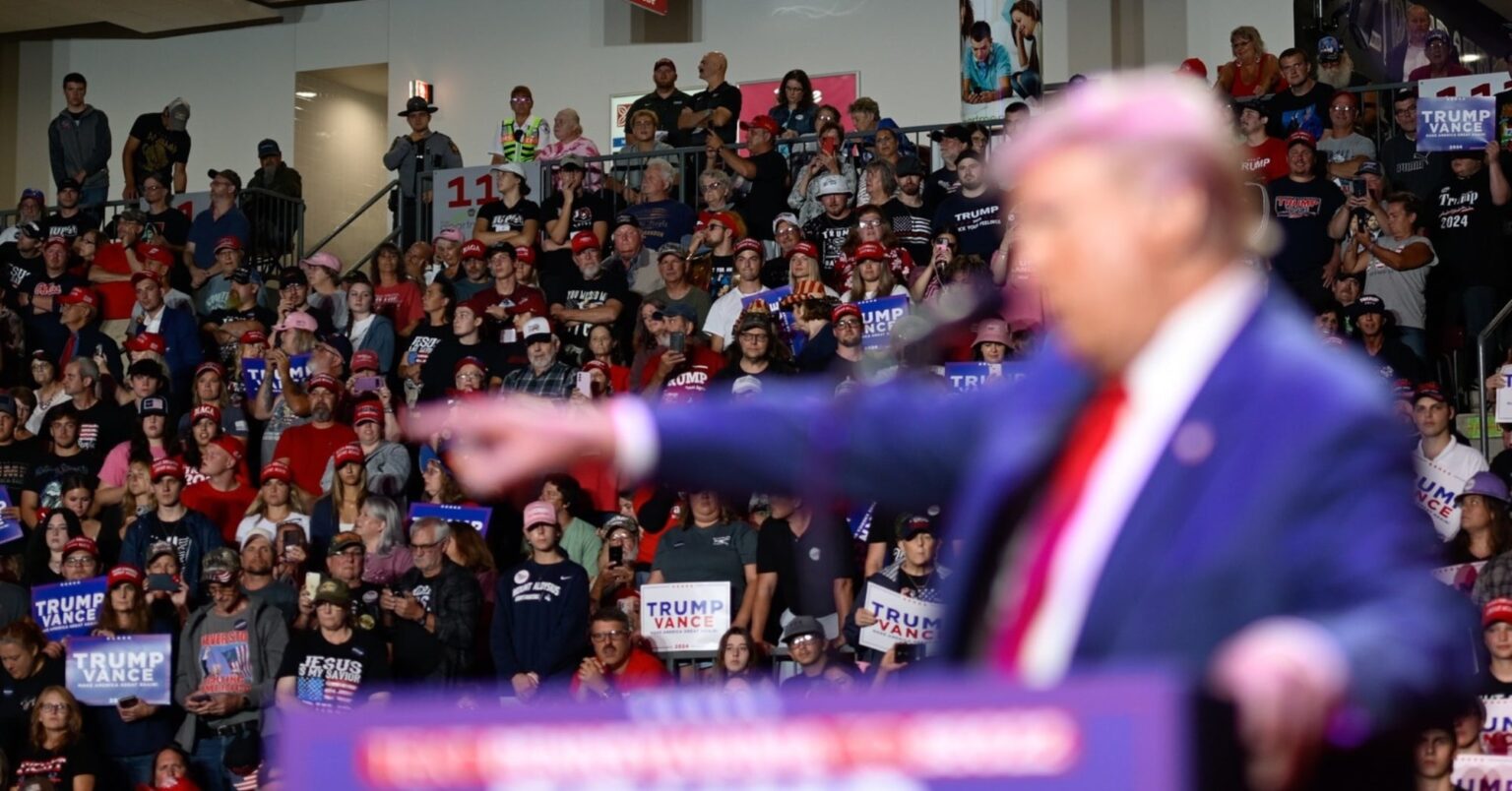Former President Donald Trump has escalated his economic protectionism rhetoric, this time targeting Illinois-based agricultural equipment giant John Deere. During a speech Monday evening in Smithton, Pennsylvania, Trump announced his intent to impose a 200 percent tariff on the company’s imports into the U.S. if it proceeds with relocating part of its production to Mexico.
The move comes in response to Deere’s recent decision to expand operations in Mexico while laying off hundreds of workers in its Midwest facilities, including Iowa. This decision has sparked outcry among the company’s employees and from local political leaders who fear job losses and economic downturns in the region.
Trump’s remarks are part of his broader economic vision of protecting American jobs from outsourcing by using tariffs as leverage, if he regains the presidency in the November election. He had previously threatened automakers with similar tariffs for moving production to Mexico, but this is the first time such a threat has been aimed at an agricultural machinery manufacturer.
The implications of such a tariff, if implemented, would be significant. John Deere, known for producing tractors, combines, and other heavy machinery essential to U.S. agriculture, would face skyrocketing costs for selling its Mexico-manufactured products in the U.S. market. These costs would likely be passed on to consumers, raising prices for farmers already struggling with inflation and fluctuating commodity prices.
Economists and business leaders warn that a 200 percent tariff could disrupt the agricultural supply chain and inflate equipment costs for American farmers who depend on affordable machinery to maintain their operations.
Deere has defended its decision to relocate part of its production, arguing that shifting operations to Mexico is part of a larger strategy to remain globally competitive. The company emphasized its continued commitment to U.S. manufacturing and workers, stating that only lower-skill operations like cab assembly would be moved. The company has pointed to challenging market conditions as a primary driver behind the layoffs and restructuring efforts.
Deere’s spokesperson has emphasized to the company’s long-standing investments in U.S. plants and noted that the move would allow the company to optimize its global supply chain while focusing on higher-value activities in its American factories.
The financial markets reacted swiftly to Trump’s remarks. John Deere’s shares fell by more than 1.5 percent in after-hours trading, signaling investor concerns over the potential for tariffs and their impact on the company’s profitability. Although John Deere did not issue an immediate response to Trump’s comments, the uncertainty surrounding the former president’s potential policy moves may leave investors cautious.
In addition to the John Deere tariffs, Trump doubled down on his previous trade policies with China. He reiterated a pledge to press Chinese President Xi Jinping to honor the $50 billion agricultural purchase agreement made during his first term in office.
“My first call — I’m going to call up President Xi. I’m going to say, ‘You have to honor the deal you made,’” Trump said at the roundtable featuring farmers at a campaign stop in Pennsylvania.
The agreement, part of the Phase 1 trade deal signed between the U.S. and China, aimed to bolster U.S. farm exports to China, but Chinese purchases fell short of the promised amount. Trump’s insistence on revisiting this deal is a signal that he plans to focus heavily on trade and tariffs in his bid for re-election in 2024, using it as a tool to rally rural and industrial voters.
However, not everyone supports Trump’s tariff-heavy approach. Billionaire investor Mark Cuban criticized the proposal, arguing that imposing such steep tariffs on John Deere could cripple the company, hurt its competitiveness, and increase costs for U.S. buyers. Cuban noted that while Trump proposes aggressive tariffs on American companies like Deere that outsource jobs, his policies could leave Chinese manufacturers with much lower tariffs, potentially making their products more attractive in the U.S. market. This, Cuban warned, could lead to a scenario where American consumers pay more for domestically-made goods, while foreign products remain cheaper and flood the market.
This Lack of Understanding of Business is insane.
Put a 200% tariff on the American company moving some production to Mexico
But tariff Chinese manufacturers 10 or 20%, so that the Chinese products will be cheaper to sell in the US than the American company.
Good way to… https://t.co/c23eVGMSeB
— Mark Cuban (@mcuban) September 23, 2024
Despite the criticism, Trump’s strategy seems to underscore his attempt to portray himself as the champion of American workers, especially in key battleground states like Pennsylvania and Iowa. These states, home to many farmers and industrial workers, were crucial to his victory in 2016 and will be critical again in his 2024 bid. Trump’s economic policies, centered around tariffs and renegotiating trade deals, are designed to appeal to these voters by promising to protect their jobs from overseas competition and reverse the effects of globalization.
In the broader context of U.S. trade policy, Trump’s proposals could have lasting implications. The U.S.-Mexico-Canada Agreement, signed by Trump in 2020 as a replacement for NAFTA, was meant to facilitate trade across North America. While the USMCA prohibits tariffs on a wide range of goods, including many agricultural and industrial products, Trump’s threat against John Deere highlights the tension between his protectionist tendencies and the free trade agreements he once championed.
For now, Trump’s comments about Deere introduce new uncertainty into the relationship between American manufacturers and U.S. trade policy. Trump’s broader economic platform hinges on a mix of protectionist policies, including universal tariffs on imported goods, which he argues will bring jobs back to the U.S. However, critics warn that these tariffs could backfire, pushing companies to raise prices and limit access to affordable goods for American consumers. In the case of John Deere, the cost of producing equipment in the U.S. could rise significantly, leading the company to either pass those costs on to farmers or further shift production abroad to avoid the hefty tariffs.


